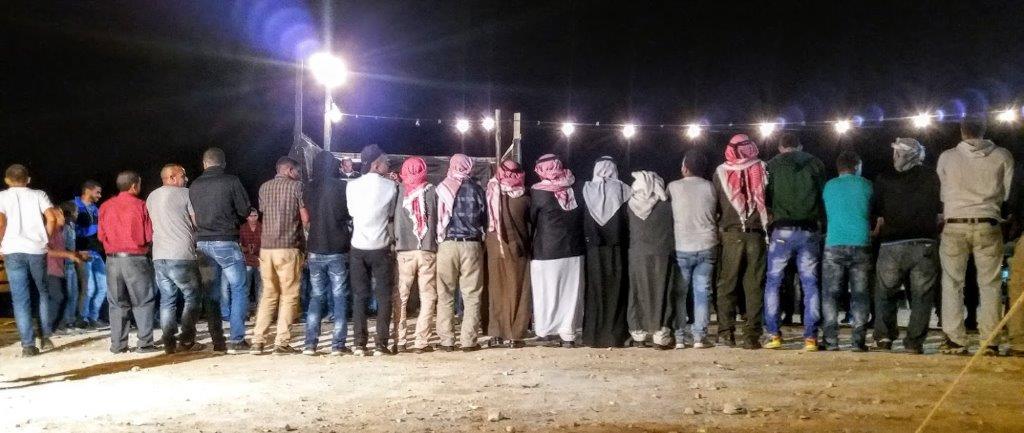
My experience is that for Israelis, in combination with foreigners, the situation would be similar to the situation among the Bedouins, but not as extreme. The Israelis would occasionally translate for the foreigners, but would continue their conversation in Hebrew. Nevertheless, the Israelis themselves would expect to receive translation. Thus, several of my Israeli friends expressed surprise about my attitude, which leaves me regularly in situations in which I do hardly understand a word. They told me that they would have felt too uncomfortable to stay in a situation where they could not understand what was being said. A similar situation with foreigners could happen in the Netherlands as well, since not that many people speak Dutch. However, my experience indicates that in the Netherlands the tendency would be to turn to English (or sometimes German or French) if a foreigner were present. Alternatively, the Dutch would provide translation.
It is to be expected that differences in the knowledge of languages contribute to these different attitudes. In the Netherlands, the knowledge of foreign languages and English in particular, is apparently of a higher level than the knowledge of English among many of the Israelis, whereas most Palestinian Bedouins do not speak English at all. Furthermore, we may postulate that the reason for Bedouins to speak Arabic has an ideological base as well, as speaking Hebrew has for many Israelis. In addition, both Bedouins and Israelis may find it difficult to grasp that someone cannot follow a conversation and how that makes this person feel. Nevertheless, it seems that a major reason for the cultural difference in this aspect is based on a difference of value orientations, and mainly on two dimensions. First, there is a different emphasis on individualism/collectivism. The Dutch are focused on the individual, whereas the Bedouins are focused on the group. Second, there is a different attitude toward uncertainty. The Dutch will find it important that each person present will be able to understand. For the Bedouins the “being” is more important than the exact text of what is spoken. They will take care that you – as foreigner often before others – get coffee or tea, and perhaps something to eat. The Dutch may be less concerned with the atmosphere or food, but – more than the Bedouins – need to feel in control. Understanding the language would be part of being in control.








